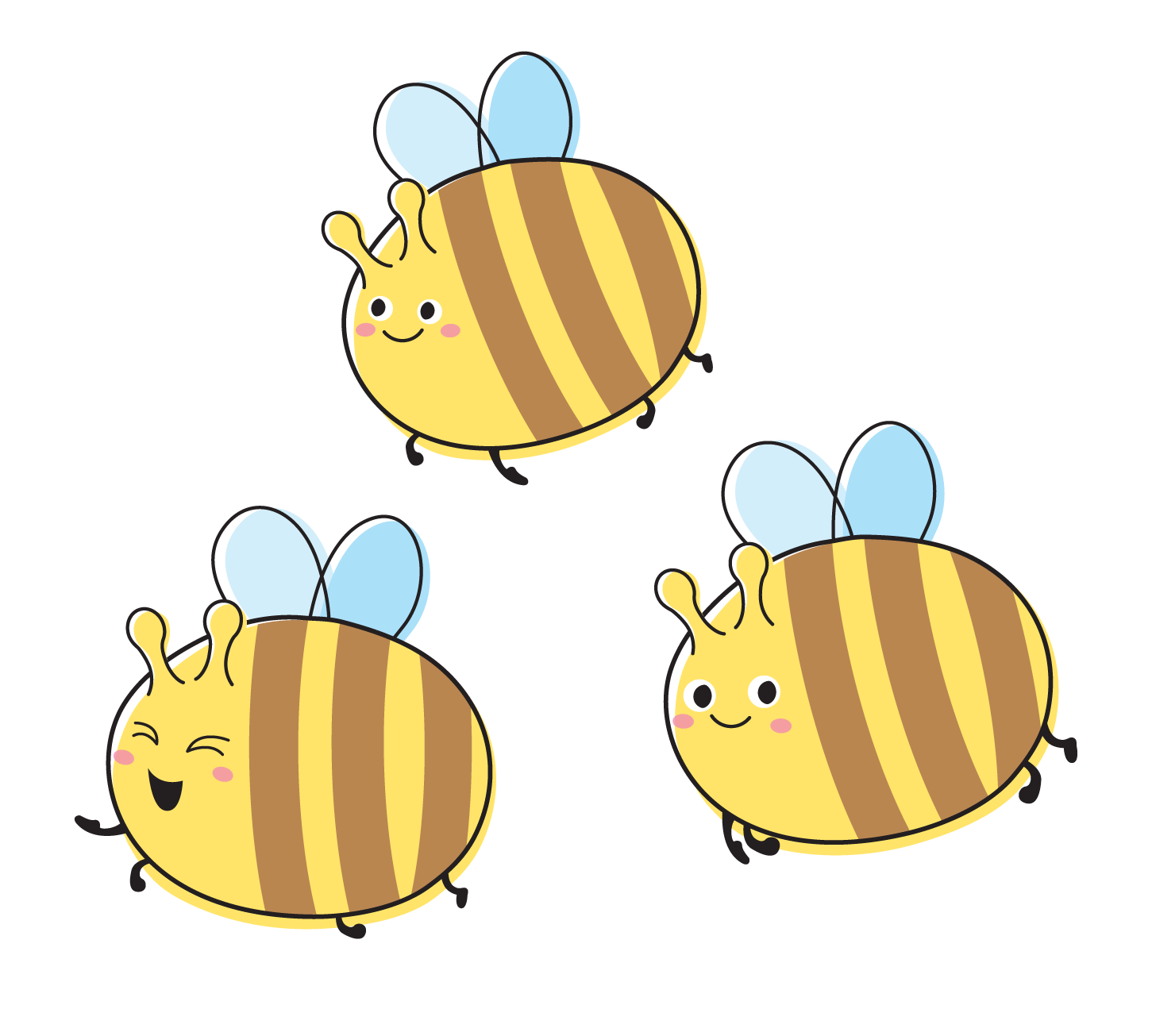Author: Krista Law So Man
Kindergarten Principal
Parenting is a remarkable journey filled with joy, challenges, and endless learning opportunities. As parents, we strive to provide the best care and create a safe environment for our children. In this article, we will delve into the fascinating realm of baby and infant cognitive development, focusing on the importance of exploration and sensory experiences. We will explore the delicate balance between concerns about dirt, germs, and messy exploration, and the significant cognitive benefits that arise from allowing our little ones to touch, feel, and explore the world around them.
The Urge to Protect: "Don't Touch, It's Dirty!"
As parents, we often find ourselves instinctively saying, “Don’t touch that, it’s dirty!” or “Keep your hands clean!” when our children reach out to explore the world around them. While our intentions are rooted in keeping our children safe and healthy, it is essential to understand that this natural curiosity and exploration are crucial for their cognitive development.
When children touch and explore their environment, they are engaging their senses and gathering information about the world. It is through these sensory experiences that they learn about textures, temperatures, shapes, and consistencies. Their hands become their tools for discovery, allowing them to understand the properties of different objects and materials.
The Power of Sensory Exploration: Learning Through the Senses
Babies and infants learn about the world primarily through their senses. From the moment they are born, they rely on their senses to navigate and make sense of their surroundings. Touch, feel, taste, smell, and sight are the gateways to understanding and processing information.
Touch is one of the most fundamental senses in early childhood development. It provides children with a wealth of information about their environment. By touching different surfaces, they learn about hardness, softness, roughness, smoothness, and various textures. These tactile experiences stimulate the nerve endings in their skin, sending signals to their brain to process and interpret the information.
Similarly, allowing babies to explore through taste and smell helps them develop a broader understanding of the world. They learn about different flavors, scents, and objects by putting things in their mouths. While it may seem messy and unhygienic at times, this exploration is a vital part of their cognitive development.
Cognitive Development Unleashed: How Exploration Shapes Young Minds
Sensory exploration plays a pivotal role in cognitive development. When children engage in hands-on exploration, their brains make important connections. They develop spatial awareness, fine motor skills, problem-solving abilities, and critical thinking.
For example, when a baby picks up a spoon and tries to put it in their mouth, they are not only exploring the object but also developing their fine motor skills. They learn to coordinate their hand movements, grasp objects properly, and understand cause and effect. Through exploration, they gain a deeper understanding of object permanence, realizing that objects still exist even when they are out of sight.
Furthermore, sensory exploration enhances children’s problem-solving skills. As they touch and manipulate objects, they learn how things fit together, how to stack blocks, and how to solve puzzles. They develop spatial reasoning as they figure out how to navigate through their environment and understand relationships between objects.
Embracing Messy Play: Benefits Beyond the Surface
Messy play, such as digging in the dirt, playing with water, or squishing playdough, may seem chaotic and untidy, but it offers numerous benefits for cognitive development. It stimulates the senses, enhances hand-eye coordination, improves dexterity, and encourages creativity and imagination.
Messy play provides children with opportunities to experiment, take risks, and problem-solve. When they pour water into different containers, they learn about volume, cause and effect, and the properties of water. When they mold and shape playdough, they enhance their fine motor skills and hand-eye coordination. These activities also foster creativity as children use their imagination to create various structures and forms.
Moreover, messy play promotes social interaction and emotional development. When children engage in messy play together, they learn to share materials, take turns, and collaborate. They develop their communication skills as they describe their creations or discuss their experiences. Messy play can be a joyful and engaging way for children to bond with their peers and develop essential social skills.
The Importance of a Safe Environment: Balancing Exploration and Hygiene
While we embrace the benefits of messy exploration, it is crucial to ensure a safe environment for our children. Simple measures like childproofing the surroundings and using non-toxic materials can help minimize risks. Regular handwashing and maintaining cleanliness in food preparation areas are essential for preventing illnesses. By striking a balance between exploration and hygiene, we can create an environment that nurtures cognitive development while prioritizing our child’s health and well-being.
Navigating Germs and Hygiene: Practical Strategies for a Healthy Balance
It’s natural for parents to be concerned about germs and hygiene, especially in the context of messy exploration. However, it’s important to be mindful of the timing and extent of our interventions. Allowing children uninterrupted playtime fosters deep engagement and concentration. Encouraging handwashing before meals and after playtime, rather than interrupting the flow of their exploration, ensures cleanliness without hindering their cognitive growth.
Parents can establish routines where handwashing becomes a natural part of their child’s daily activities. For instance, before mealtime or after outdoor play, children can wash their hands thoroughly. By making handwashing a positive and enjoyable experience, children are more likely to develop good hygiene habits.
Additionally, parents can create designated play areas or use protective coverings to minimize mess and facilitate easier cleanup. This way, children can freely explore and engage in sensory play without parents worrying excessively about the aftermath.
Encouraging Sensory Exploration at Home: Simple Activities for Cognitive Growth
There are numerous activities parents can incorporate into their daily routines to promote sensory exploration and cognitive development. From sensory bins filled with various textures to nature walks where children can touch leaves, rocks, and flowers, these experiences provide rich opportunities for learning and growth. Engaging in art projects, cooking together, or creating sensory play stations at home can also enhance cognitive development while allowing for safe and controlled exploration.
Parents can create sensory bins by filling containers with materials like rice, beans, sand, or water beads. Add scoops, spoons, and small toys to encourage exploration and imaginative play. Nature walks provide opportunities for children to touch the different textures of leaves and flowers, listen to the sounds of birds, and observe the changing colors of the seasons. Engaging in art projects, such as finger painting or clay modeling, allows children to explore different materials and develop their fine motor skills.
The Journey of Parenthood: Cultivating a Mindset of Calm and Balance
As parents, it is natural to have concerns and worries about our children’s well-being. However, by cultivating a mindset of calm and balance, we can embrace the messy exploration that fuels their cognitive development. Trusting in their innate abilities, providing a safe environment, and allowing them the freedom to explore will contribute to their overall growth and development.
It’s important to remind ourselves that messiness and exploration are inherent parts of childhood. By embracing messy play and sensory exploration, we demonstrate our support for our children’s natural curiosity and encourage their cognitive growth. By providing a safe and nurturing environment, we can strike the right balance between allowing exploration and maintaining hygiene.
Conclusion: Embrace the Mess, Nurture the Mind
In the journey of parenting, it is crucial to strike a balance between protecting our children and fostering their cognitive development. Embracing messy exploration allows children to engage their senses, make important cognitive connections, and understand the world around them. While it’s essential to maintain hygiene practices, we should also be mindful of the immense benefits of touch, feel, and exploration. By allowing our children to play, discover, and learn, we provide them with the foundations for a lifetime of cognitive growth and a deep understanding of the world.




